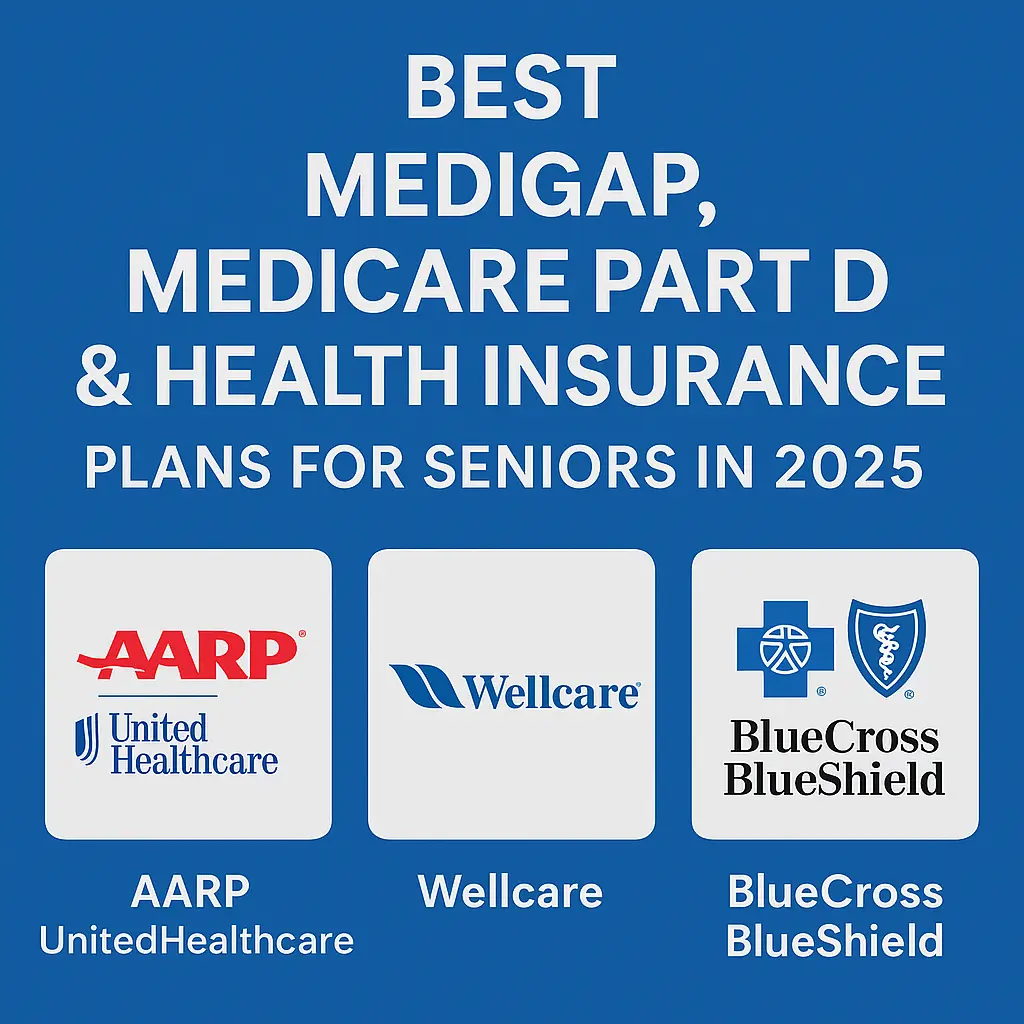For most seniors, AARP/UnitedHealthcare stands out as the top choice for Medigap (Medicare Supplement) plans in 2025. Medigap policies help cover costs that you’d normally have to pay out of pocket with standard Medicare.
One important thing to remember: the benefits of a specific Medigap plan (like Plan G or Plan N) are standardized by law. That means Plan G from any insurer will offer the same coverage—the difference lies in price, customer service, and added perks.
While Medigap policies typically cost more than Medicare Advantage plans, they often result in lower out-of-pocket medical costs when you need care. This makes Medigap a smart option for seniors who want predictable healthcare expenses as they age. Another advantage: with Medigap, you can see any doctor nationwide who accepts Medicare.
Tip: First, decide which Medigap plan letter matches your needs. Then, choose a company that offers competitive rates, strong customer reviews, and valuable extra benefits.
About Medigap Plan G
(Plan details, pros, and cons can be added here as needed.)
Best Medicare Part D Plan: Wellcare
Wellcare earns top marks for Medicare Part D prescription drug plans, combining solid ratings with affordability. The company offers some of the lowest average monthly premiums, and certain plans start at $0 per month.
If you have Original Medicare, adding a Part D plan is crucial because it provides coverage for prescription medications—costs that can add up as you get older. However, if you already have Medicare Advantage, you usually won’t need Part D since most Advantage plans include drug coverage.
Best Health Insurance If You’re Under 65: Blue Cross Blue Shiel
For those under 65 who don’t have job-based insurance and don’t qualify for Medicare or Medicaid, Blue Cross Blue Shield (BCBS) offers the best overall marketplace health plans. Available through HealthCare.gov or state exchanges, BCBS plans are widely rated as reliable and high-quality.
These plans are often the most affordable when purchased through the marketplace, especially if you qualify for government subsidies or premium tax credits based on your income.
Best Short-Term Health Insurance: UnitedHealthcare
When you need temporary coverage—for example, during a gap between retirement and Medicare eligibility—UnitedHealthcare offers some of the most comprehensive short-term plans.
While short-term plans are cheaper than regular marketplace insurance, they usually come with significant limitations. They may cap benefits, exclude important protections (like preexisting condition coverage), and aren’t eligible for subsidies. They’re best suited for a few months of interim coverage, not long-term needs.
Best Option for Low-Income Seniors: Medicaid
Medicaid provides free or low-cost health insurance for those with low incomes. Many seniors benefit from dual enrollment in both Medicare and Medicaid to reduce medical expenses.
Income eligibility varies by state. In most states, single individuals earning about $21,000 annually or families of four earning around $44,000 qualify. States like Alaska and Hawaii have higher limits. Some states require both low income and additional qualifications, such as a disability or need for nursing care.
If you earn too much to qualify but have high medical expenses, the Medicaid spend-down program may help you meet eligibility.
What is the best health insurance for retirees and seniors?
Medicare is the top choice. You can opt for Original Medicare (Parts A and B) or a bundled Medicare Advantage plan (Part C).
What’s the best secondary insurance for Medicare?
Medigap Plan G is generally the best for covering costs not paid by Original Medicare. Pairing it with a Part D plan helps cover prescriptions.
How much does senior health insurance cost?
In 2025, Medicare Part B costs about $185/month. Medicare Advantage plans average an additional $28/month.
Our Methodology
We based our recommendations on data from the Centers for Medicare & Medicaid Services (CMS), plan documents, and independent reviews. We considered costs, coverage, benefits, networks, and ratings from groups like J.D. Power, AM Best, NCQA, and NAIC. Medigap price estimates reflect quotes for a 65-year-old nonsmoking female.


